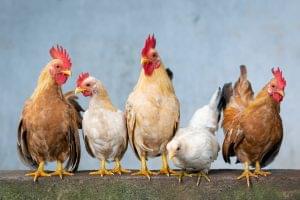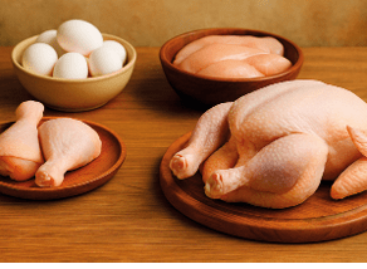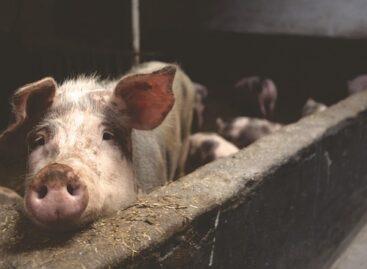DSM predicts that consumers will switch from more expensive meats to poultry
From the Tuesday forecast of the Dutch chemical company DSM, it can be read that due to the constantly rising food prices, customers are increasingly choosing cheaper poultry meat instead of more expensive types of meat.

Consumers also save on raw materials used at home due to increased costs. (Photo: Pixabay)
This process can already be seen in action in China, as the declining demand for meat products has already shown itself there. The restrictions due to the COVID-19 epidemic, the reduction of the local pig population and the appearance of food shortages result in ever higher food prices. This situation encourages people to increasingly vote for the more economical poultry meat instead of the more expensive pork meat. The situation also affected DSM 2022’s first half-year results, since many of the company’s products are related to animal husbandry in some way. The company group, which regards sustainable food production as a priority, has raised its objectives for reducing the emission of greenhouse gases. The senior managers see that in the long term, the transformation of meat consumption habits will not cause problems for the future of the company.
Related news
EU poultry meat rules are changing: the 12-week limit for “free-range” labeling is being relaxed during a pandemic
🎧 Hallgasd a cikket: Lejátszás Szünet Folytatás Leállítás Nyelv: Auto…
Read more >(HU) Pro-Duck Kft.
🎧 Hallgasd a cikket: Lejátszás Szünet Folytatás Leállítás Nyelv: Auto…
Read more >The producer price of domestic slaughter pigs decreased by more than a quarter in one year
🎧 Hallgasd a cikket: Lejátszás Szünet Folytatás Leállítás Nyelv: Auto…
Read more >Related news
How does the forint exchange rate affect consumer prices?
🎧 Hallgasd a cikket: Lejátszás Szünet Folytatás Leállítás Nyelv: Auto…
Read more >HELL CITY has arrived, led by Michele Morrone
🎧 Hallgasd a cikket: Lejátszás Szünet Folytatás Leállítás Nyelv: Auto…
Read more >Two million people have already voted, so 57 million forints will be given to locals in 125 settlements, courtesy of Tesco
🎧 Hallgasd a cikket: Lejátszás Szünet Folytatás Leállítás Nyelv: Auto…
Read more >








